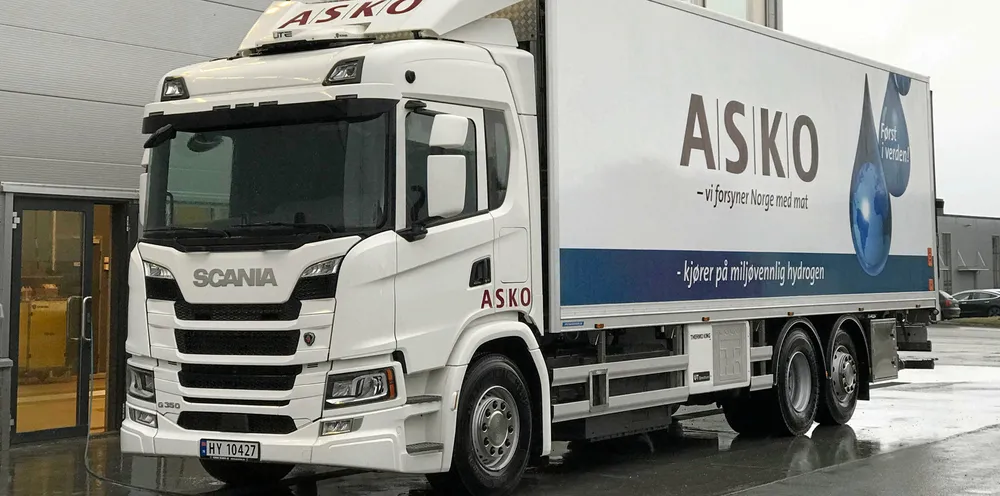After plotting battery-electric future, truck maker Scania hedges bets with new hydrogen vehicles
The Volkswagen-owned company last year issued statement dismissive of H2's future role in long-distance transport, but says it is now building 'an initial 20 fuel-cell trucks'

Having announced last year that it would focus on battery-electric trucks, because hydrogen would be too inefficient and expensive for long-distance transport, Swedish truck maker Scania has now unveiled plans to build new fuel-cell trucks.
But on Friday, the Swedish company — which is owned by Germany’s Volkswagen — announced it would develop “an initial 20 fuel-cell electric trucks” with US-based fuel-cell and electrolyser manufacturer Cummins as part of the Air Liquide-led HyTrucks project, which aims to put 1,000 hydrogen trucks on the roads in Belgium, the Netherlands and western Germany by 2025, along with the required refuelling infrastructure.
“Whilst there are batteries in every fuel-cell electric truck, fully battery-powered trucks remain Scania’s main strategy as they provide a higher uptime and improved costs per km or hour of operations for our customers,” the company said in a statement.
Scania’s head of e-mobility, Frederik Allard, said: “We have been clear that battery electric is what we see as the main track for all applications. That said, we are open to what our customers want also with regards to other solutions, like hydrogen.
“In some operations and geographies where battery electric vehicles are not optimal, we see that fuel cell electric vehicle will be used. We keep a close dialogue with our customers on what is best both for their total operating economy and our planet.”
The new fuel-cell trucks will be based on Scania’s battery electric vehicle platform, and use Cummins’ fuel cell, refuelling and storage solutions.
“The HyTrucks project will enable Scania to learn even more about how to install fuel cell systems, the operations and what customers experience,” the statement added.
“Scania is interested to learn what role green hydrogen can play. It might not be the most efficient solution but it is free of carbon.”
The company already has fuel-cell trucks in operation in Norway and Sweden.